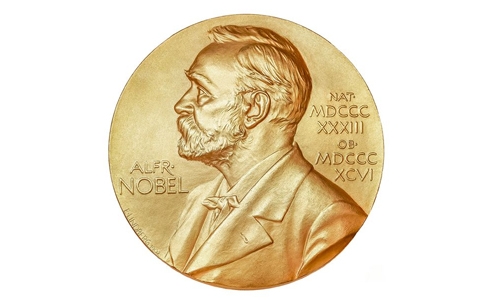Nobel Prize: The beginnings and the criticisms
“Alfred Nobel, the Merchant of Death is dead”. In 1888, this headline in a French newspaper shocked everyone. In fact, it would shock the man Alfred Nobel himself. He was very much alive then, and had the misfortune of reading the news of his own death. In this piece of premature obituary, published on the reputed inventor of dynamite and the wealthy owner of several companies, was scathing criticism for most of his inventions, which were used in wars, to kill people.
It must have filled him with remorse. After all, who wants to be remembered as a merchant of death? Which is why, people say, he decided to leave a better legacy. And therefore established the foundation that gives Nobel Prizes on an annual basis. In 1895, one year before he really died, Nobel had signed his last will and testament. In it, he had set aside some 94 per cent of all his assets to establish Nobel Prizes, to be awarded annually without distinction of nationality. Some people calculate it, in today’s prices, to be roughly worth some USD 500 million or more. And this tells us why the rest of the family was evidently angry and upset at Alfred Nobel’s decision.
From 1901, as he wanted, Nobel Prizes were given in five categories: Physics, Chemistry, Medicine, Literature and Peace. But, it was only in 1968, that the annual ‘Economics’ prize was established, by a donation from Sweden’s central bank Sveriges Riksbank to the Nobel Foundation -- to commemorate the bank’s 300th anniversary. And, therefore, technically, it is not a Nobel Prize, in the real sense. Like every year, the Nobel Prize Award Ceremony will take place on the 10th of December in Stockholm, where the Nobel Laureates receive the Nobel Medal, Diploma and the prize sum. And like every year before the annual ceremony, in this September-October too, we have heard the announcements of winners.
With Monday’s final announcement of the 2018 Nobel for ‘Economics’ - to William Nordhaus and Paul Romer - all the awardees’ names are now out, in all categories. Except in Literature, that is. The 2018 Nobel Prize in Literature has been cancelled after a sexual assault scandal which caused serious infightings, resignations, and leaks of secret documents, which somewhat blackened the image of the awards. And while it is sad to see the reputed Swedish Academy mired in a bog of controversies this year, it is also somewhat reassuring that they have decided to give ‘two’ Nobel Prizes in Literature in 2019.
‘Nobel Prizes often go to men because they ignore women’s nominations’. This has been a long-standing criticism of the awards, which I find reasonable. In its almost 120 years of existence, Nobel Prizes have been awarded to 844 men and 27 organisations. But how many women? A mere 49. Marie Curie won it twice, and is counted twice here. It is indeed a sad fact. But interestingly, in this year, among the awardees announced are three women - Donna Strickland, Frances Arnold and Nadia Murad, who are sharing their Physics, Chemistry and Peace awards, respectively, with men.
But the best year, by far, for women had been 2009 when five women had won the Nobel Prizes in four categories, though some were shared. Criticism abounds also on the Euro-centric and Western-oriented selection of winners, and on the nominations of some who have not achieved the stellar levels that deserve a Nobel win, but only for political correctness. However, despite these alleged biases of race, gender, and political appeasements, we must agree that Nobel Prizes are still unique, on a global scale. Unique, just like its founder the noble Nobel.
Related Posts

